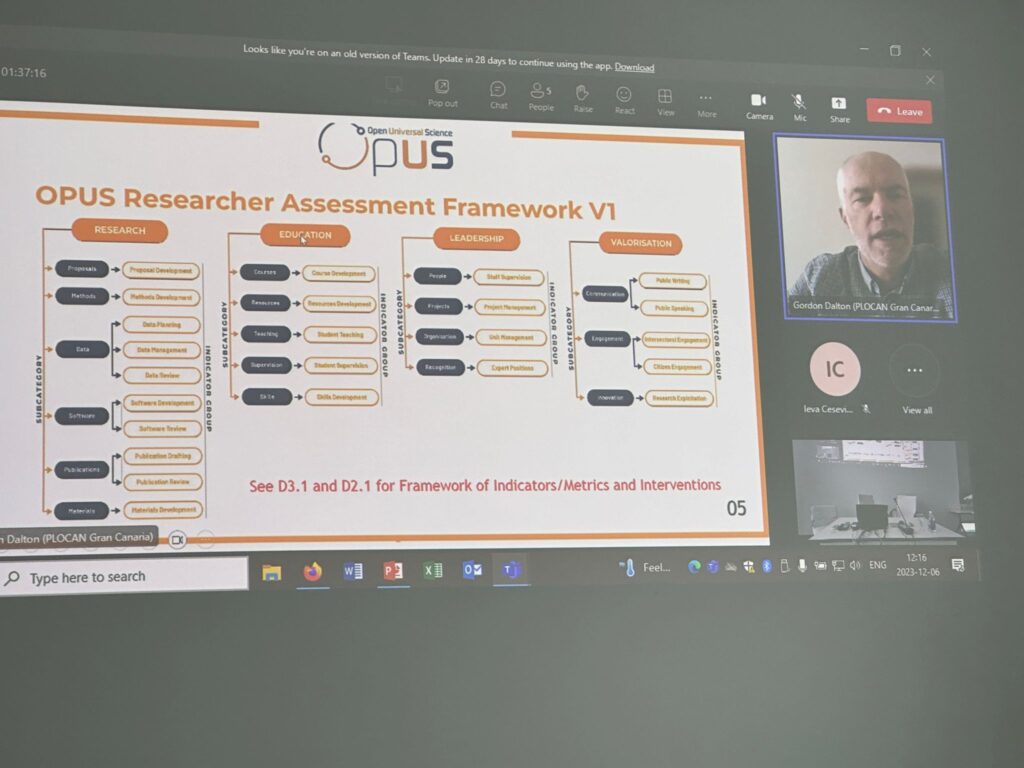
Gordon Dalton presents OPUS Project and Future Goals at Open Science Event in Vilnius
Gordon Dalton presents OPUS Project and Future Goals at Open Science Event in Vilnius https://opusproject.eu/wp-content/uploads/2023/12/OPUS-at-Lithuania-Open-Science-event-1024x768.jpg 1024 768 Open and Universal Science (OPUS) Project Open and Universal Science (OPUS) Project https://opusproject.eu/wp-content/uploads/2023/12/OPUS-at-Lithuania-Open-Science-event-1024x768.jpgVilnius, Lithuania – Gordon Dalton, the OPUS project coordinator at PLOCAN, took the stage at the “Discover Open Science Activities in Lithuania” event today to showcase the notable achievements of the OPUS project over the past year and shed light on the future of Open Science principles.
In his presentation, Mr. Dalton not only highlighted the project’s accomplishments but also outlined a visionary path where Open Science and researcher assessment frameworks will take center stage. The OPUS team’s efforts, ranging from developing the Researcher Assessment Framework to implementing interventions, were showcased to provide a comprehensive understanding of the project’s trajectory.
OPUS, in collaboration with three Research Performing Organizations (RPOs) and two Research Funding Organizations (RFOs), is actively piloting the implementation of the Research Assessment Framework. The initiative places a strong emphasis on practically integrating Open Science Principles within these pilot organizations, with the aim of influencing other institutions to provide incentives and rewards for researchers embracing Open Science.
During the presentation, Gordon Dalton delved into the complexity of the Researcher Assessment Framework and interventions, setting the stage for the tangible impact that OPUS aspires to make in the academic landscape.
One noteworthy aspect of OPUS is its commitment to action plans and mutual learning exercises. The project is executing testing phases for indicators and interventions within its pilot organizations, a process that will be detailed in Deliverable D4.3 – “Action Plans to Implement the Pilots – Final.” This strategic approach ensures a systematic implementation of the Research Assessment Framework, with OPUS taking on a direct role in providing training and resources while closely monitoring progress and offering ongoing support.
OPUS is committed to advancing Open Science and reshaping academia. The project’s teamwork and hands-on initiatives highlight its dedication to turning Open Science principles into action, benefiting researchers and the wider scientific community.
- Posted In:
- OPUS News

